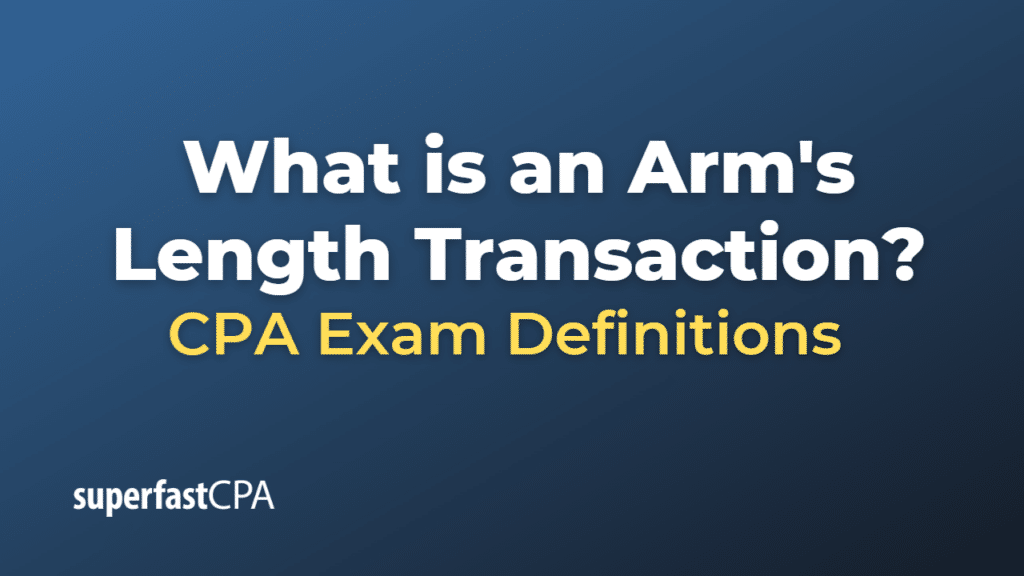Arm’s Length Transaction
An arm’s length transaction is a transaction in which the parties involved are independent, unrelated, and have no special relationship or influence over each other. In such a transaction, both parties act in their own self-interest and negotiate terms and conditions that are fair and representative of market conditions. The concept of arm’s length transactions is important in various areas of finance, accounting, and taxation, as it ensures that the transaction is conducted under normal market conditions and reflects a true and fair value.
For example, when two unrelated companies negotiate a deal for the sale of goods or services, they would typically determine the price and terms based on the prevailing market rates, without any undue influence or favoritism. This would be considered an arm’s length transaction. Conversely, if two related parties, such as a parent company and its subsidiary, conduct a transaction, there could be concerns about the fairness of the terms, as they might not truly represent market conditions due to the special relationship between the parties.
Example of an Arm’s Length Transaction
Let’s consider an example of an arm’s length transaction involving the sale of a commercial property.
Company A wants to sell a commercial property it owns, and Company B, which has no connection or relationship with Company A, is interested in purchasing it. Both parties engage in negotiations, and after researching the market and comparing similar properties, they agree on a price of $2 million. Neither Company A nor Company B has any influence over the other, and they have both acted in their best interests to negotiate a fair price based on market conditions.
In this case, the transaction between Company A and Company B is considered an arm’s length transaction, as it was conducted fairly, without any special relationship or influence between the parties, and the agreed-upon price reflects the true market value of the property.












